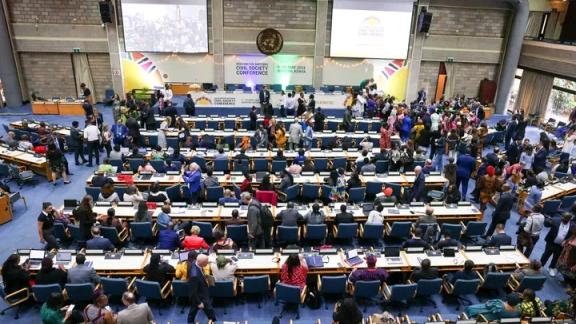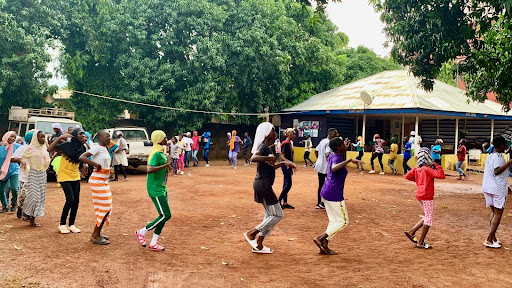by Jemaimah Ansumene Akiteyi
As we reflect on the passage of 29 years since the inception of the Beijing Declaration and platform for action, coupled with 79 years since the establishment of the UN charter, the gradual achievement of Agenda 2030 within the next six years highlights the contributions made by both Civil Society Organizations (CSOs) and young people in shaping a future that increasingly demands coordinated international endeavors. As we gear towards the Summit of the Future, we still ask, “How far have we come?”, “What progress has been made?”, “How can we bridge the gaps left?”

Come along with me as I share my experience at the just-ended 2024 United Nations Civil Society Conference (UNCSC) in Nairobi, Kenya, from 9 to 10 May 2024. The conference being the first of its kind in Africa, offered CSOs an opportunity to put a global perspective on specific issues while bringing together senior UN officials, prominent international civil society organizations, youth changemakers, academia, public opinion makers, and international media to identify gaps, give recommendations and make commitments, and discuss issues of global concern.
The conference featured various perspectives, calls to action, and insights. Ms. Karimot Odebode asked a powerful question during her poem reading at the opening ceremony - “My generation is tired. We want real change. Are you ready to commit to peace? Are you ready? Because I commit. Do you?”

Reflecting on the discussions and break-out sessions, several gaps exist and there’s a need for swift action. Highlights of global issues from the need to integrate sexual and reproductive health and rights (SRHR) for adolescent girls/boys to the need for addressing issues such as female genital mutilation/cutting (FGM/C), children’s rights, and the definition of meaningful youth engagement in the pact of the future. Despite the progress made in advancing SRHR globally, there remain significant challenges, including the prevalence of gender-based violence, limited access to SRHR care for marginalized groups, inadequate funding for SRHR initiatives, and discrimination towards the LGBTIQ+ communities in certain parts of the world.
According to a recent press release published by UNICEF in March 2024, over 230 million girls and women alive today have been subjected to female genital mutilation, yet this issue is not adequately addressed within the SDG framework. Additionally, there is a lack of integration between the challenges faced by adolescents and youth and the strategies for their resolution. Speakers like Amina J. Mohammed (Deputy UN Secretary-General), Julia Fan (Senior Manager-Youth Engagement at Women Deliver), and others emphasized how important it is to shape the future through diversity, green projects, justice, and equality. Their statements underlined the need for institutional transformation, the need to give voice to underrepresented groups, and the importance of young people in decision-making.
As we march forward to the Summit of the Future, it is imperative to prioritize funding for adolescent- led initiatives, enhance grassroots engagement, and strengthen collaboration between governments, civil society, the UN, and other stakeholders. Additionally, there is a need for greater visibility and recognition of the SRHR needs of persons with disabilities and other marginalized groups.
Jemaimah Ansumene Akiteyi, 24
Youth Action Movement,
Planned Parenthood Association of Ghana
when
country
Ghana
region
Africa
Subject
Young People, Advocacy
Related Member Association
Planned Parenthood Association of Ghana













